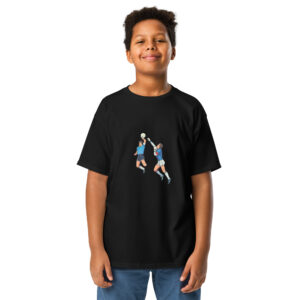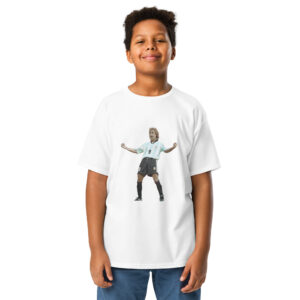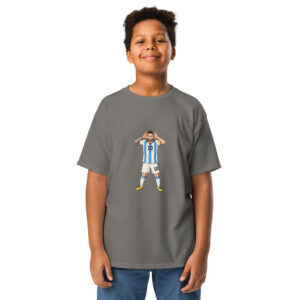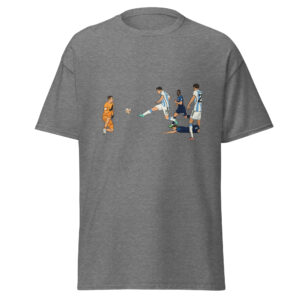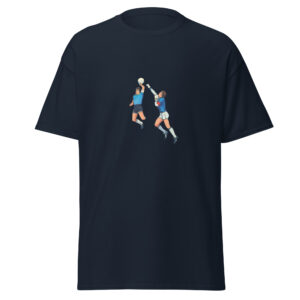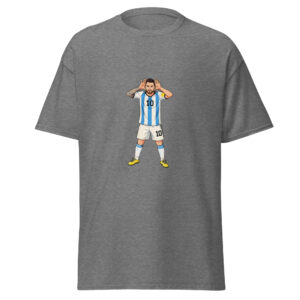Former Argentina and Atlético Madrid player Maxi Rodríguez interviewed Diego Simeone for Telemundo.
Maxi began the interview with a heartfelt confession:
“Before we begin, I want to confess something: for me, you were a role model since I was a kid, someone I always watched in the national team. So honestly, it’s a pleasure for me to be here talking to you.”
Diego Simeone responded with humility and humor:
“Well, thank you, first of all. Regarding being a role model and the admiration, I’ll just say I’m not as old as it might seem! But yes, I believe your characteristics were quite similar to ours—commitment and hard work. I think you scored more goals and played better than I did. But your time at Atlético de Madrid also reflected some of what we had built. Even without much connection, there was always something that united us.”
When asked about Atlético Madrid’s ability to win more championships, Simeone remained optimistic:
“Can we become champions again? Of course, because we’ve done it before. The possibility always remains that we can do it again. We did it in 2014 and repeated it in 2021.”
He acknowledged the challenges his team faces:
“The difficulties are still there. Wherever we play, Barcelona and Real Madrid are there. In La Liga, we have to compete against them. We go to the Champions League, and there’s Barcelona and Real Madrid. We go to the Copa del Rey, and there’s Barcelona and Real Madrid.
So of course, it’s difficult because to be champions, at some point, you have to beat Real Madrid and Barcelona. Historically, they’ve always had extraordinary players. That makes it so that, at some point, the opportunity arises for us to win. That expectation is there, and we demand it from ourselves.”
Simeone shared his perspective on player management:
“Footballers are selfish; we all want to play. Sometimes players don’t play, and they’re upset. Over time, they internalize it, even if it’s hard. Even if I tell you that I value your contribution in the last 30 minutes, the player will say, ‘No, I want to start.’
But you might start, not perform well, and not realize that the 30 minutes you’re used in are spectacular. So we manage that balance with respect, showing players equal treatment as professionals.
Respect comes from how I make you train and how I treat you as a person. If I sub you out 10 minutes before the end, that’s not disrespect; I never saw it that way. Respect, for me, is tied to work.”
When asked about his son Giuliano, who plays for Atlético, Simeone said:
“I want to win. Whether his last name is Simeone or Pérez, it makes no difference to me. I don’t see him as my son when I’m coaching.”
Simeone reflected on his future at Atlético Madrid:
“I know there will come a time when either the club or I decide to part ways, whether it’s in a year, in eight years, or in four—I don’t know.
But I also know I will need to allow myself to explore other paths and seek new experiences. What we’ve achieved here will probably be impossible to replicate elsewhere, but I can pass on the values and all the things we’ve built here.”
Maxi Rodríguez also asked about Messi and his impact on the game, to which Simeone responded:
“Messi is an exceptional phenomenon. He continues to perform at a great level despite his age. What he does is extraordinary, and it’s difficult to maintain this high performance over the years.”
Simeone then commented on how he lived the 2022 World Cup as an Argentina fan and shared his emotions:
“I consider myself fortunate because we went to see Argentina’s second match without knowing what would happen with Saudi Arabia, as we were traveling at the time. We arrived just in time for the match against Mexico. The first half was tough, and you couldn’t really see what was coming. There was a lot of tension, which was normal since the result would determine everything that followed.
Then, in the second half, Leo (Messi) appeared, and with that goal came a sense of calm. From that moment, you could start to see good things on the horizon. There were some changes made during the match that allowed Scaloni to open up the team’s options a bit more. That’s the mindset we coaches have — always thinking about the possibilities that different players can bring. After the Mexico match, I said, ‘I’ll schedule my training for December with a day off for the final.’ No matter what happened, I planned to be there for the final because we were close, and I had organized everything to make it happen.
Of course, I always dreamed it would be Argentina playing, but I didn’t imagine it could actually happen. When the situation came, I found myself reliving memories from my childhood—going to the stadium with Diego Simeone as a kid and feeling that same excitement.
As a fan, I experienced it all intensely. Being there brought me back to the days when I used to watch Argentina’s matches on TV. It was a powerful feeling, something truly special.”


